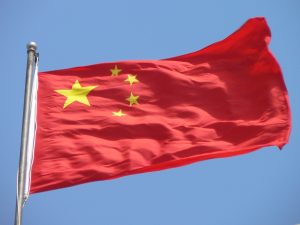The Standing Committee of China’s National People’s Congress passed new legislation on “countering foreign sanctions” on June 10. The law, first proposed during the NPC’s annual session back in March, is part of Beijing’s plan to push back more forcefully against foreign sanctions as they become an increasingly common tool in the China-U.S. competition.
The full text of the law is available here in Chinese; for an unofficial English translation see China Law Translate (as of now, it’s still incomplete). Notably, it begins by reasserting China’s long-standing policy of non-interference in other country’s affairs and opposition to “hegemonism and power politics.” China has a long history of criticizing other countries’ sanctions on exactly those grounds; thus the law is framed as entirely reactive and defensive – “corresponding countermeasures” when “a foreign country violates international law and basic norms of international relations; uses every kind of excuse or the basis of its own laws to contain and suppress China; adopts discriminatory restrictive measures against Chinese citizens and organizations; and interferes in China’s internal affairs.”
Thus, the law empowers the State Council specifically to enact its own sanctions on individual or organizations responsible for formulating, deciding on, or implementing sanctions against China – as well as their immediate family or organizations sanctioned individuals are affiliated with. Sanctions may include banning entry into China, seizing property or assets within China, and prohibiting business transactions or cooperation with Chinese companies. Organizations and individuals within China are also explicitly prohibited from complying with U.S. sanctions against Chinese citizens or entities, posing a tricky choice for multinational companies. (For a more detailed overview, see this Twitter thread from NPC Observer.)
In essence, this law codifies steps China has already taken. Beijing has increasingly resorted to its own use of sanctions, as a means of retaliation for similar measures passed by other countries. On January 20, China slapped sanctions on officials from the outgoing Trump administration in the United States, including former Secretary of State Mike Pompeo, citing “a series of crazy moves which have gravely interfered in China’s internal affairs, undermined China’s interests, offended the Chinese people, and seriously disrupted China-U.S. relations.” In March China announced sanctions on five members of the European Parliament, as well as several European researchers and legislators, in retaliation for the EU’s collective sanctions targeting abuses in Xinjiang.
An explanation of the new law from Xinhua, China’s state media agency, complained that “For some time, out of political manipulation needs and ideological bias, some Western countries have used Xinjiang and Hong Kong-related issues as part of their pretexts to spread rumors on and smear, contain and suppress China.”
“In order to resolutely safeguard national sovereignty, dignity and core interests and oppose Western hegemonism and power politics, the Chinese government has launched multiple corresponding countermeasures against entities and individuals of relevant countries since the beginning of 2021,” Xinhua said, citing the spokesperson’s office of the Legislative Affairs Commission of the NPC Standing Committee
The new law is “paying them back in their own coin,” Xinhua paraphrased the spokesperson’s office as saying.
As Andrew Rennemo noted in a previous analysis for The Diplomat, “China is a late and reluctant participant in the sanctions game,” having previously preferred unofficial economic retaliation that allowed for plausible deniability. The law passed today adds to China’s new toolkit for retaliating against foreign sanctions, more evidence that Beijing is now willing to give as good as it gets.

































